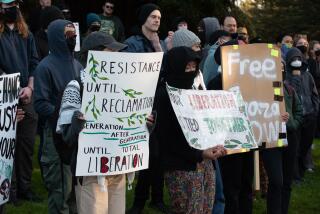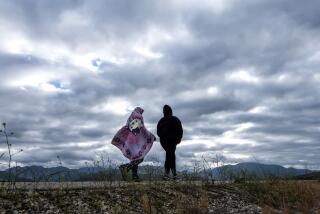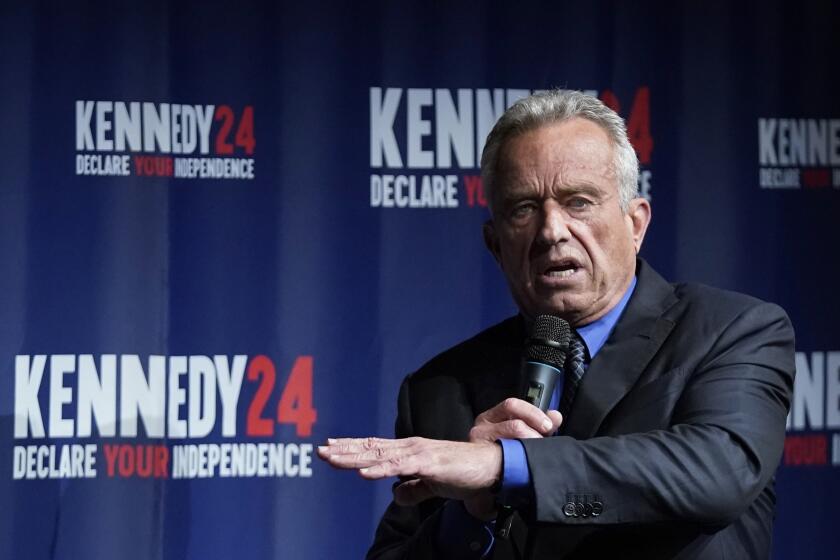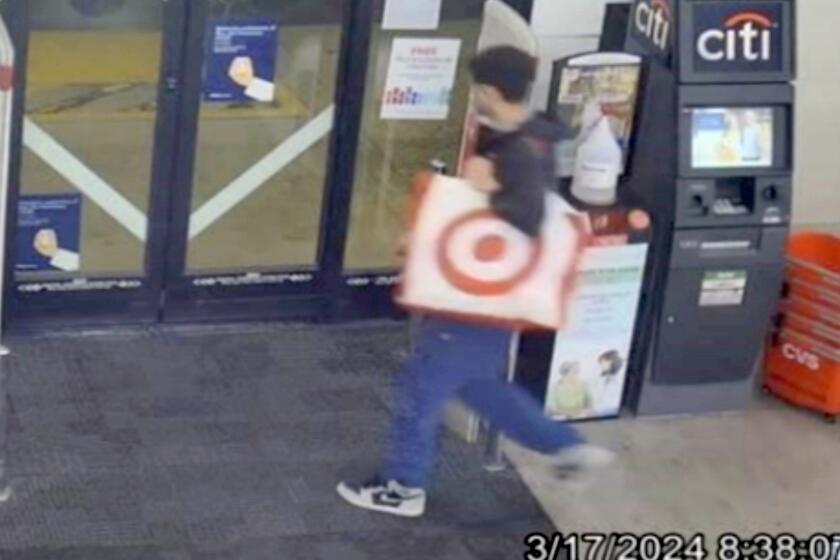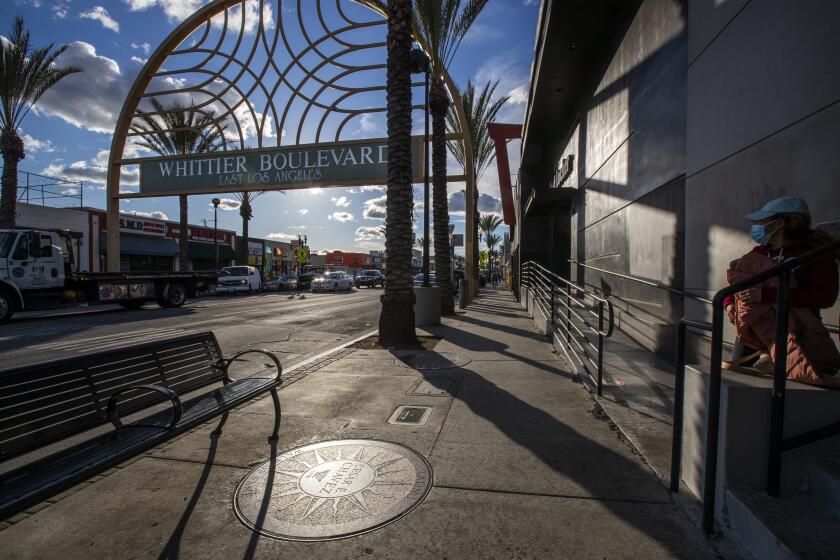Assuming Lawyer’s ID Is Easy, Official Admits
It’s almost as easy to assume the identity of a lawyer as it is to change your name, a State Bar of California official conceded Tuesday.
But since 1972, only five people, including John Vescera of Santa Ana, have ever been accused of getting State Bar credentials to pose as lawyers, said William Dunn, the bar’s chief financial officer who oversees membership records.
Dunn said that Vescera, 28, was able to obtain a State Bar card--the courtroom’s equivalent of a driver’s license--after slipping through the bar’s internal verification procedures, the same procedures that caused the bar to reject a bar card application from his brother, Frank, 34, of Mission Viejo.
The Vescera brothers were charged Tuesday with conspiracy to practice law without a license, conspiracy to commit grand theft and 192 counts of grand and petty theft.
Their 10-month operation allegedly brought in more than $100,000 from unsuspecting clients, primarily Latino defendants accused of drunk driving, investigators said.
There is “no question” that the bar owes a duty to the public to license and issue bar cards only to lawyers, said former State Bar President Anthony Murray of Los Angeles. “The question is how we exercised that duty,” he said.
Procedures to Be Reviewed
Local bar leaders also were hesitant to fault the State Bar without knowing more details, but they agreed that the bar’s verification procedures should be tightened.
Dunn said the bar will review its procedures and change them if necessary.
Although some people who change their names do so by obtaining a court order, no such formality is required by state law. “An individual may use any name he wants to as long as he doesn’t do it for the purpose of defrauding anyone,” said David L. Price, president of the Orange County Bar Assn.
“It’s so ridiculous the way people can change their names,” said Patricia Phillips, president of the Los Angeles County Bar Assn. “People call me and ask how they can change their name, and the answer is, ‘Just change your name.’ You don’t have to do anything except tell people your new name.”
According to investigators and the State Bar, the Vescera brothers learned, as anyone can, how lawyers change their names and addresses on the State Bar rolls--and they “complied with all procedures,” Dunn said.
John Vescera wrote a letter to the bar in October, 1983, essentially identifying himself as John Helmick, listing Helmick’s State Bar card identification number and asking for a new card to be issued under his “new” name, John Vescera.
Old, ‘New’ Names Signed
He also signed the letter twice, once under the name of John Helmick and once under his “new” name, as the bar requires. Dunn acknowledged that checking the signatures with prior signatures on file is one of the internal checks.
Nothing apparently alerted the bar’s staff to the possibility that the request was fraudulent. Though Helmick, who was born in 1890 and was licensed in 1922, had died a few months earlier, the State Bar had not been notified--and still has not been notified, Dunn said.
After his brother received his bar card, Frank Vescera sent in a similar request last March, identifying himself as Burton R. Cohn and asking for a new bar card under the name of Frank Vescera, said Dunn and investigators.
“He picked the wrong guy,” said Cohn’s former law partner, C. Peter Anderson of Claremont. “Burt was an adjunct professor at Loyola Law School, an ex-president of an electronics firm and too well-known.”
Dunn would not say what internal check had alerted the bar staff to probe Frank Vescera’s request, but investigators said the very name change seemed too conspicuous.
Bar Informed of Death
Anderson said he told bar officials that Cohn had died Jan. 1, 1984. In a later telephone call, he said, they told him they were going to stake out a Santa Monica mailing address Frank Vescera had listed to try to find him. However, nothing came from the probe, Anderson said.
The State Bar would normally turn over such cases to local prosecutors, Dunn said, but he would not say what was done in Frank Vescera’s case.
He said the bar has licensed about 95,000 lawyers in the state, about two-thirds of them since 1972, and that it gets about 200 requests per year for name changes, mostly from women changing to or from a married name.
Having only five people impersonating lawyers during that time, he said, shows that lawyers “are pretty decent and honorable people.”
He also pointed out that clients can easily check with State Bar offices in Los Angeles or San Francisco to make sure the attorneys they hired are really licensed.
More to Read
Start your day right
Sign up for Essential California for news, features and recommendations from the L.A. Times and beyond in your inbox six days a week.
You may occasionally receive promotional content from the Los Angeles Times.
